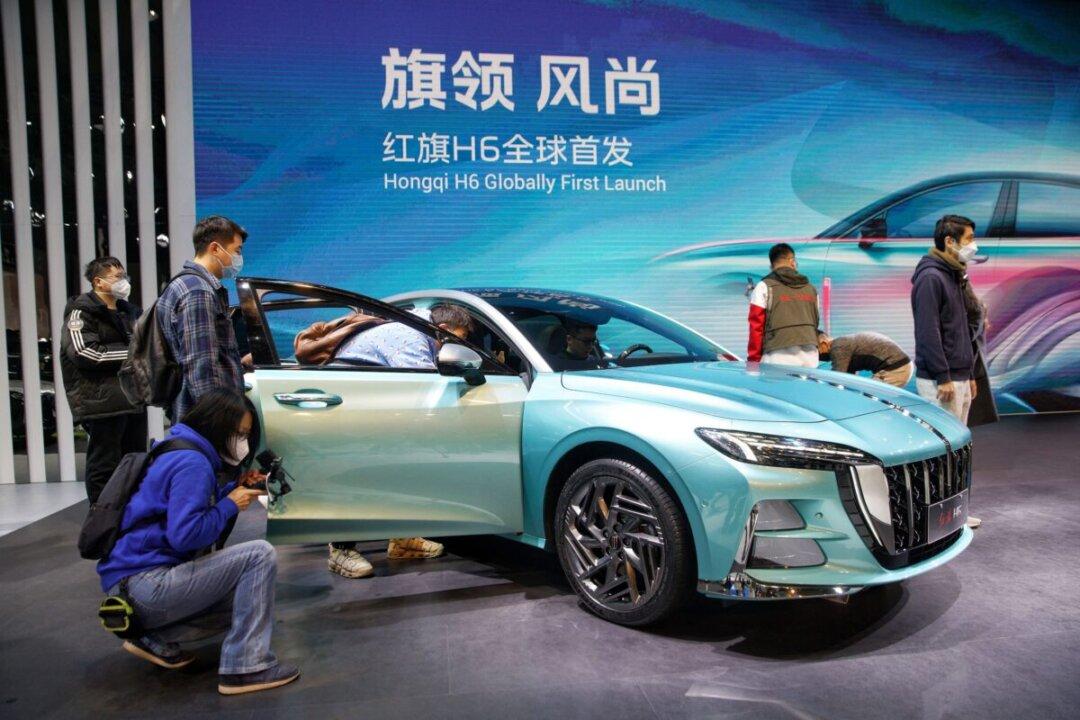Despite multiple stimuli such as price cuts and government-issued consumer vouchers, the Chinese auto market started the new year on a gloomy note in January, with both manufacturing and selling being heavily shrunken.
China’s Auto Output and Sales Plummet in January Despite Local Government’s Purchase Incentives

Visitors look at a Hongqi H6 on the opening day of the 20th Guangzhou International Automobile Exhibition in Guangzhou, China, on Dec. 30, 2022. STR/AFP via Getty Images
|Updated:




